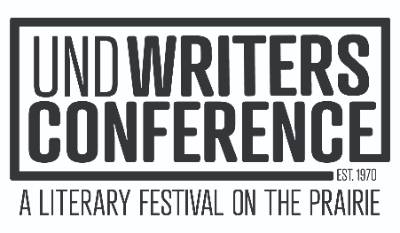Writers Conference History
Organizational History of the UND Writers Conference
While the English Department traces its roots to the very founding of the University in 1883, the Writers Conference only began in 1970. Founded by the late Professor John Little, the conference had a modest beginning with the Southern Writers Conference of the Arts. Funded by the College of Arts and Sciences as well as by some of the visiting writers themselves, the conference was so successful that it became an annual event, almost immediately.
Though the conference quickly had university wide appeal and, since the mid Seventies, significant attendance from the community and region, it has always been organized by faculty, staff, and students of the English Department. In more recent years it has become known nation wide as one of the most distinctive conferences of its kind, in part because it remains free and open to the public, probably the only way it could function.
Financial support for the conference has always come from a variety of sources, depending on a particular conference topic or other factors in shifting personnel and circumstances at the university. The steadiest support historically was from student organizations and the president's office, but there have often been grants from outside agencies, donations from alumni and other individuals, and, since the mid 1990s, a modest but growing endowment, managed by the UND Alumni Foundation.
Currently, the UND Writers Conference is funded through those same modest endowments, individual gifts, and yearly grant writing, as well as new gifts from alumni and other friends of the Conference like the Alice Lillian Carlson Estate, The Kemen/Randall Family Writers Conference Distribution Fund, the John Little Memorial Endowment, and the Jackie McElroy-Edwards and Tom Edwards Writers Conference Endowment.
Having celebrated its 55th year in 2024, the Conference enjoys a national reputation among writers as one of the best run, most interesting events of its kind, especially because of its strong public audiences, attracted by its free and open format. A large number of volunteers from around the university and the community make it all possible, but it is still organized by the UND English Department, which donates administrative support and the release of one class per semester for the faculty member who directs it.
